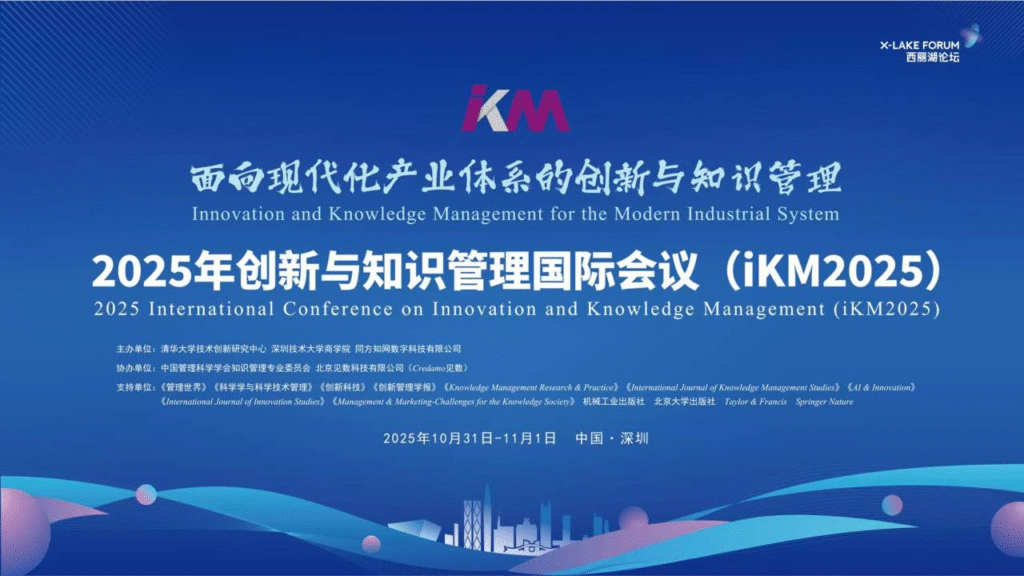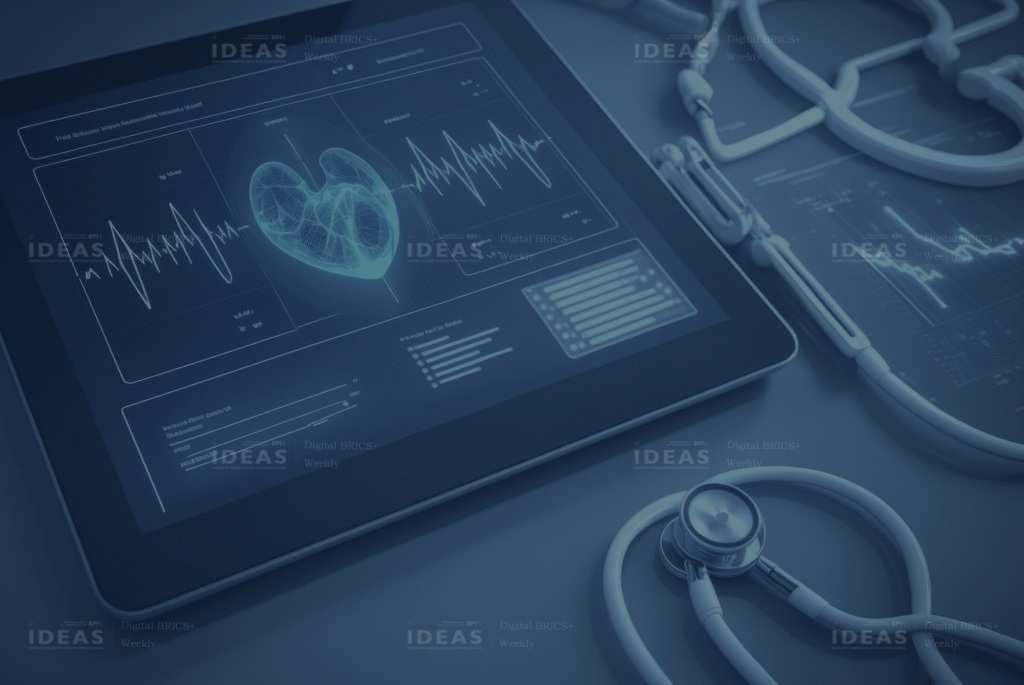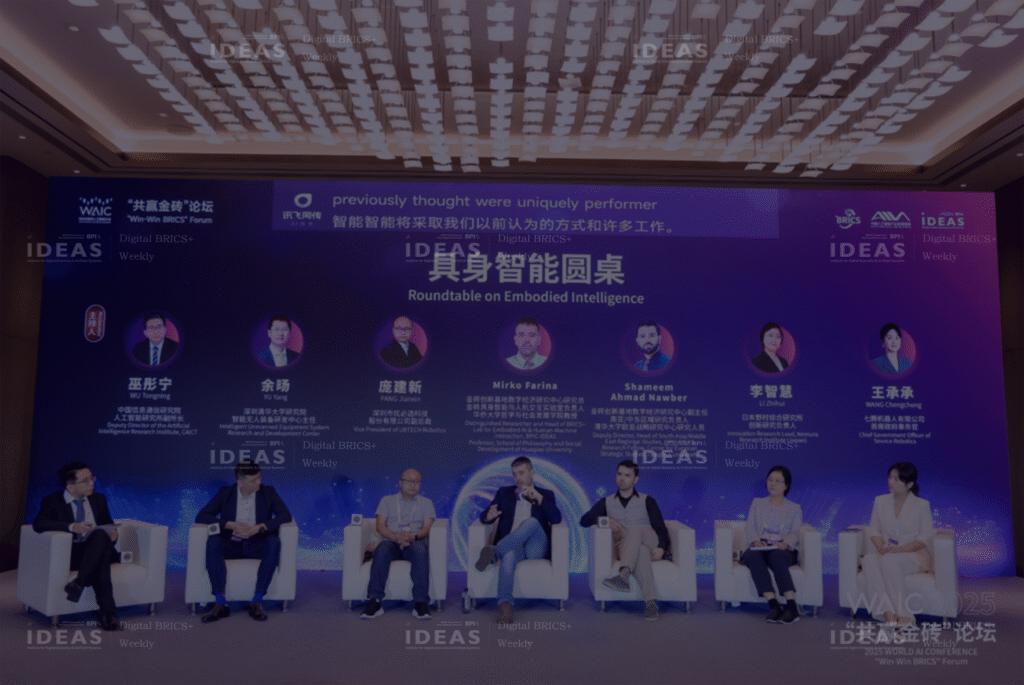A Platform for Global South Perspectives on AI
On 27th July, the academic journal AI & Innovation (AI2) – launched by Institute for Digital Economy & Artificial Systems (IDEAS) at the 2025 World Artificial Intelligence Conference (WAIC)’s Win-Win BRICS Forum – officially opened its call for papers. The journal is seeking submissions on global artificial intelligence governance, with a particular focus on schemes from the Global South.
Jointly published by IDEAS, Tsinghua University, Xiamen University, and Willey, this international English journal aims to become a leading venue for strengthening discourse of emerging and developing countries. It seeks to provide a fresh perspective for navigating the New Industrial Revolution and paving the way for a more equitable AI-driven world.
At the launch ceremony, the following co-editors and executive editor officially opened AI2 for global submission:
- Jin Chen, Academic Committee Member, BPIC-IDEAS; Professor of Economics, Management, and Director of the Center for Technological Innovation at Tsinghua University
- Rongrong Ji, Council Member and Director-General of, BPIC-IDEAS; Nanqiang Distinguished Professor, Assistant President, and Executive Director of the Artificial Intelligence Research Institute, Xiamen University
- Mirko Farina, Researcher and Head of BRICS+ Lab for Embodied AI & Human-Machine Interaction, BPIC-IDEAS; Professor, School of Philosophy and Social Development, Huaqiao University
- Xiao Yu, Council Member and Executive Secretary-General, BPIC-IDEAS; Vice Dean and Associate Professor, Department of Political Science, Sichuan Administration Institute; Executive Director, Sichuan Provincial Key Laboratory of Digital Administration & Organizational Synergy (DAOS Lab)
- Yufan Zhang, Publisher, China Co-Publishing Team, Wiley
AI: Focusing on Interdisciplinary Analysis of the AI Revolution
As a peer-reviewed journal, AI2 rigorously analyzes the AI revolution from social, technology and ethical perspectives. Notably, AI2 explores AI through four interconnected dimensions:
- Foundations & Frontiers of AI Science: Prompting groundbreaking theoretical paradigms and exploring the basic foundations of intelligence.
- AI Engineering & Systems Innovation: Highlighting transformative technological innovations in AI hardware, software, and integrated systems.
- AI Applications & Societal Impact: Addressing critical sector-specific applications and global challenges, such as healthcare, education, and climate change.
- AI Ecosystems, Governance & Ethics: Shaping the trajectory of a responsible AI future by enhancing ethical frameworks and equitable governance models.
For too long, developed countries have dominated the rule-setting and ethical framework of global AI, with limited input from the global south. In this context, AI2’s mission is invaluable: to provide a platform for supplementing viewpoints of the global south and exploring sustainable development paths that align with global interests. The journal has established international diverse editorial board comprising approximately 70 renowned scholars from 30+ countries, ensuring the academic rigor and representativeness. We sincerely welcome submissions of frontier research outcomes from scholars worldwide.










No comment yet, add your voice below!